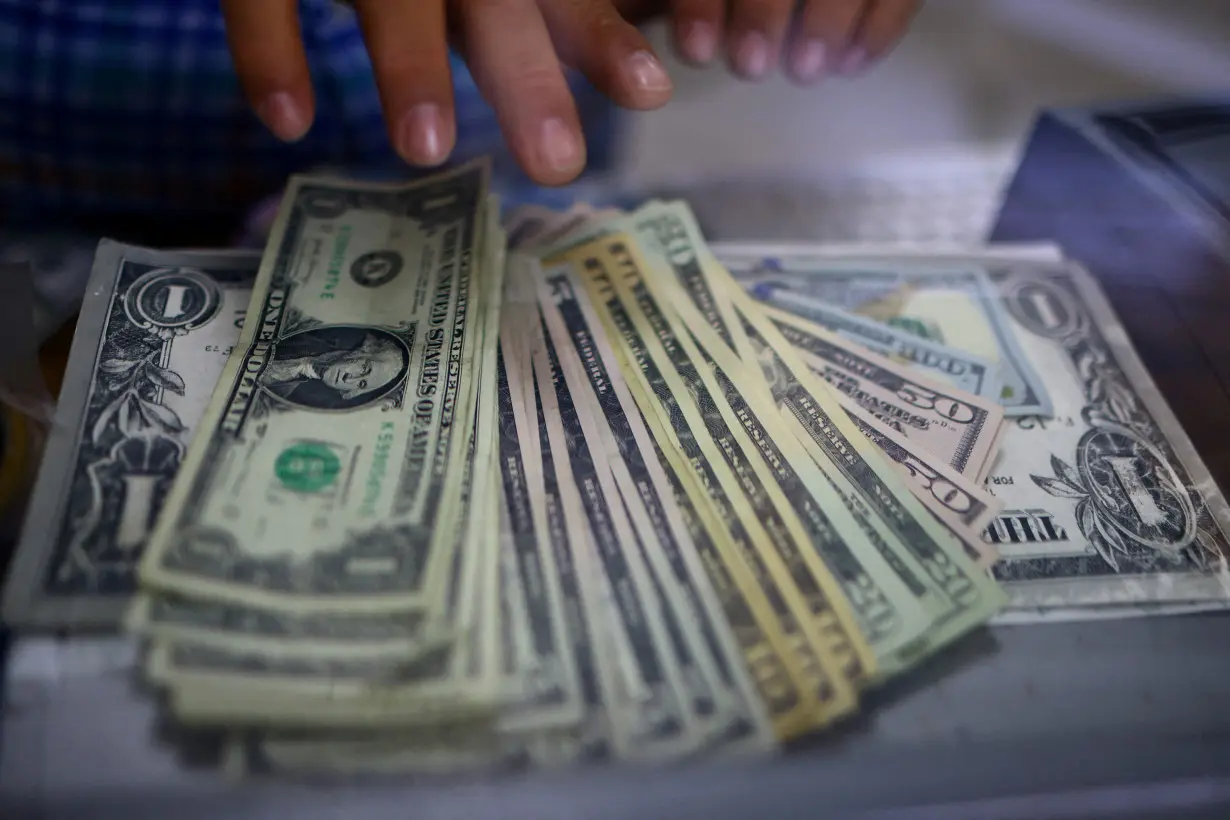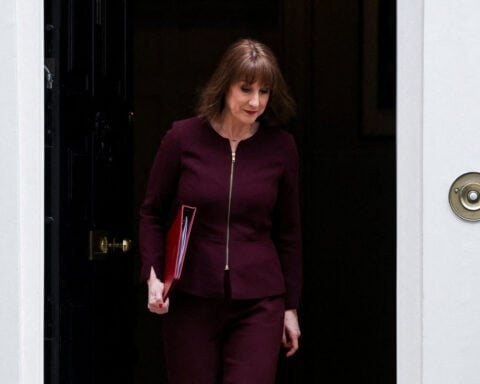By David Randall and Davide Barbuscia
NEW YORK (Reuters) - Bond investors' rising concerns around U.S. government spending and its ballooning budget deficit are contributing to a steep sell-off that has pushed Treasury prices to 17-year lows.
So-called bond vigilantes - investors who punish profligate governments by selling their bonds, driving yields higher - were a feature of markets in the 1990s, when concerns over U.S. federal spending pushed Treasury yields to 8%.
Anticipation of a surge in U.S. government deficit spending and debt issuance to cover that spending has unnerved investors and brought the term back into Wall Street's daily lexicon.
Cutting the country's credit rating recently, ratings firm Fitch projected the U.S. deficit would rise to 6.3% of gross domestic product this year from 3.7% in 2022, due to higher debt service costs, new spending initiatives and weaker federal revenues.
While the Federal Reserve’s hawkish interest rate projections have been a key catalyst driving yields higher and weighing on prices, market participants pin part of the selloff in longer-dated debt on investors wary of rising spending.
Yields on U.S. 30-year Treasuries - which move inversely to prices - surged to 5% on Wednesday for the first time since 2007 in a broad global bond selloff before steadying.
"There's a concern now that if government spending doesn't come down now, how large is it going to be if we do hit another recession and you could have very significant deficits and … significant amount of (Treasury) supply," said Gene Tannuzzo, global head of fixed income at Columbia Threadneedle.
Fiscal worries have been growing since the summer, when the Treasury announced plans to increase debt issuance.
Overall Treasury auction sizes will rise by an average 23% across all maturities in 2024, according to estimates from the Apollo Group. At the same time, the Fed is progressing with “quantitative tightening" - a reversal of the massive central bank bond purchases undertaken to support markets in 2020.
A 156% rise in the federal deficit over the past year has resulted from falling government receipts due to lower capital gains and smaller salary bonuses in 2022 as well as sharply higher tax refunds, the Treasury Department has said. Government spending rose 10% over that time, driven by higher Social Security payments and rising debt expenses.
"People are waking up to the idea that interest expense alone is increasing at a rate that’s not sustainable," said Jake Remley at Boston-based asset manager Income Research and Management.
Strategist Ed Yardeni, who coined the bond vigilantes term in the early 1980s, has also chimed in.
“The bond vigilantes have been challenging (Treasury Secretary Janet) Yellen’s policies by raising bond yields to levels that threaten to create a debt crisis,” he said in a Financial Times opinion piece on Wednesday. “In this scenario, higher yields crowd out the private sector and trigger a credit crunch and a recession.”
Restive bond investors in the UK last year helped force a policy U-turn after a plan to slash taxes sent borrowing costs soaring, showing that bond vigilantes remain a force to be reckoned with.
Still, not all investors believe vigilantes will be able to push the $25 trillion Treasury market around.
Famed bond investor Bill Gross, who co-founded Pacific Investment Management Co., said bond vigilantes will have a muted effect now given the Fed's larger role in markets.
Bond investors "are rather powerless pawns in this interest rate chess game," he told Reuters by email. "The powerful kings (the Fed) and queens (the Treasury) control the board with inflation and enormous future supply of Treasuries, leading to a possible checkmate at higher yields and lower stock prices.”
Greg Whiteley, a portfolio manager at DoubleLine, believes concerns over rates, rather than Treasury supply, are a key driver of the selloff. Some fund managers are waiting for a peak in yields before stepping in, he said.
“The government’s finances are a mess but that’s not the primary driver of why people are selling bonds now," he said.
The recent selloff has brought yields back to their pre-financial crisis norms, increasing the attractiveness of bonds overall and boosting investor returns, said Robert Tipp, chief investment strategist and head of global bonds at PGIM.
(Reporting by David Randall and Davide Barbuscia; Editing by Ira Iosebashvili, Megan Davies and Cynthia Osterman)

 Trump has begun another trade war. Here's a timeline of how we got here
Trump has begun another trade war. Here's a timeline of how we got here
 Canada's leader laments lost friendship with US in town that sheltered stranded Americans after 9/11
Canada's leader laments lost friendship with US in town that sheltered stranded Americans after 9/11
 Chinese EV giant BYD's fourth-quarter profit leaps 73%
Chinese EV giant BYD's fourth-quarter profit leaps 73%
 You're an American in another land? Prepare to talk about the why and how of Trump 2.0
You're an American in another land? Prepare to talk about the why and how of Trump 2.0
 Chalk talk: Star power, top teams and No. 5 seeds headline the women's March Madness Sweet 16
Chalk talk: Star power, top teams and No. 5 seeds headline the women's March Madness Sweet 16
 Purdue returns to Sweet 16 with 76-62 win over McNeese in March Madness
Purdue returns to Sweet 16 with 76-62 win over McNeese in March Madness






